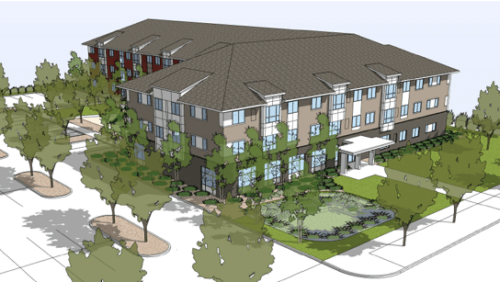January 2019 Housing Update
Happy Holidays to all! This is the January Affordable Homes Update.
Did you realize that Minneapolis made history last week? The Minneapolis City Council passed the Minneapolis 2040 plan, which will guide development over the next 20 years. What makes the plan so special? It is striking a blow against housing discrimination and in favor of affordable housing. The plan does away with single-family zoning, which means that “tri-plexes” will be allowed throughout the city. According to Slate Magazine, single-family zoning was designed to keep African Americans and other persons of color from moving into certain neighborhoods in Minneapolis. More flexible housing options can make housing more affordable for minorities. However, the Minnesota Daily says the plan excluded student housing. Several news outlets focused on this story including, the New York Times, CityLab, the Brookings Institution and Reason Magazine. Charlotte Magazine looks at Minneapolis and hopes that North Carolina’s largest city will pursue something similar.
In relation to the Minneapolis story, CityLab has an article on why cities must tackle single-family zoning.
Across the river in St. Paul, the city council voted in favor of a $71 million plan to expand the inventory of affordable homes over the next three years. This includes a $10 million housing trust fund.
The inventory of Naturally Occurring Affordable Housing (NOAH) dropped significantly between 2012 and 2017. But a new report by the McKnight Foundation shows local partnerships are coming together to preserve NOAHs.
The housing manager for Olmstead County wanted to provide more than just a roof over the heads of public housing residents in Southeastern Minnesota. She is also working to help the residents make connections with each other and the wider community.
According to a report by the real estate website Zillow, rising rents contribute to homelessness. You can look at a summary of the report on Vox.
California has had a big problem with a lack of affordable housing. One of the reasons for this goes back to a law approved in a public referendum nearly 70 years ago. Article 34 specifies no “low rent” housing can be built without the approval of a majority of the local jurisdiction. This law is a driver of segregated housing, keeping persons of color out of certain areas. A California State Senator is working to repeal Article 34 through the ballot in 2020.
In 2012, US Supreme Court Chief Justice John Roberts wrote the decision that upheld the Affordable Care Act (ACA). Included in the decision was a ruling saying states could not be penalized for not expanding Medicaid. This set up an unintentional experiment in economics among the health “haves” and “have-nots.” A study found that states, where Medicaid was expanded there was a 25 percent decrease in late or missed rental payments.
Massachusetts Senator Elizabeth Warren introduced the American Housing and Economic Mobility Act in September. An article in Curbed describes the legislation as “The bill would create three million new housing units, improve access to affordable housing through anti-discrimination laws, and invest in families living in historically redlined communities.” In addition, this past summer, Indiana Senator Todd Young introduced a bipartisan bill that would establish a task force on affordable housing. He also introduced a bill in May that would allow for greater choice in the housing voucher program.
Finally, a 9 year-old from Minneapolis is not interested in getting presents for himself this year. Instead, he wanted people to donate blankets to the homeless. Joey and his mother will soon deliver the donated blankets to people connected to the Franklin-Hiawatha Encampment.
That’s all for the Housing Update for this month. Have a great new year and see you in 2019.


